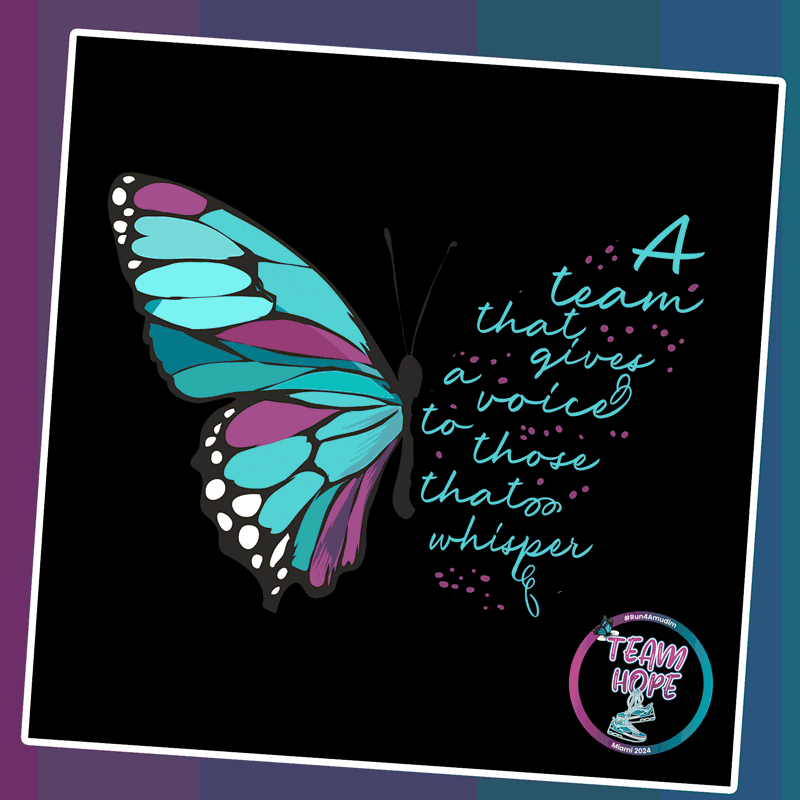
On January 29, 2024, some 25,000 runners from 50 states and 80 countries will lace up their running shoes and come together to run the annual Miami Marathon. Now in its 21st year, the 42.195-kilometer (26.219 mile) race includes a half-marathon and wheelchair division for both races.
As with most marathons, some participants will be running as individuals and others as members of teams formed to benefit various charities and foundations.
Nine teams have already signed up to run for Amudim, a confidential resource center within the Orthodox Jewish community that combats crisis by raising public awareness, implementing community-wide educational programs, and providing meaningful assistance, support, and direct referrals to individuals, families, and communities impacted by sexual abuse, substance abuse, mental illness, and so on.
Several years ago, Rabbi Zvi Gluck of Amudim received a call from a young woman named Dini who introduced herself as a sister of Malky, who was a former Amudim client. Gluck hadn’t forgotten Malky, who had struggled with addiction and been in and out of rehab for years. Like many addicts emerging from detox, when Malky relapsed she forgot that her body could no longer handle the quantity of drugs that it had absorbed in the past, and when she took a dose to numb
her pain, it proved to be her last. At 26, Malky overdosed and succumbed to addiction.
As a tribute to her sister who had passed away single and without children, Dini was interested in creating an everlasting legacy for Malky, whom she describes as “the most giving, selfless person I knew. Anyone who knew Malky remembers her as happy-go-lucky, giving of herself, even when she had nothing left to give. Others will remember her as the one that dropped everything to be there, the late-night phone calls that they know she’d answer despite the hour, the drives to anywhere.”
DINI’S BRAINSTORM was to form a team to run the Miami Marathon and raise money for people struggling with addiction, so she reached out to Amudim to find out if they would get involved and help her create the program. Tzippy Landau, a graphic and web designer who works for Amudim, was a former classmate of Malky’s and the child of a father who’d struggled with addiction and eventually succumbed to overdose.
Tzippy was eager to get on board and volunteered to run the project. “I’d worked for Amudim for several years already, and I’m hugely passionate about what we do. I was excited to create something that would help us raise awareness, while simultaneously providing funding for those in need. But what really took me by complete surprise was how much I, and all the runners, gained from it on a very personal level,” Landau relates.
She created a group chat and put together a group of runners who trained and fund-raised as they prepared for the event. “We had many people in the recovery community join us as runners; and while the idea had begun as a way for them to give back to a community that had helped them recover, the runners found a
great deal of healing as well.
“Amudim’s group was joined by several young men and women who were recovering from eating disorders join us, and we celebrate their accomplishments with them. Some ran the full marathon, some ran half, some walked it and some got on the bus for part of it, but we all celebrated each other. “Seeing the success and positive feedback, we knew that we couldn’t end here and that this wouldn’t be a one-time experience.”
This year, at least nine teams are joining the Run for Amudim campaign, each one with a story and a mission of its own. “Our runners are heroes who want to give back, and Run for Amudim is an exciting and positive opportunity for them to get involved and make a real difference,” says Zvi Gluck, CEO of Amudim.
“By lacing up and preparing to run for Team #Run4Amudim, our runners become agents of change, impacting people’s lives globally. Run for Amudim is a project innovated by people with personal stories, and together we’re creating a better world, where survivors can find strength, support, and healing.”
SARA WINOGRAD is a team leader who lost her boyfriend Uri last year to addiction. “This year, I’m joining the marathon, running with Amudim to raise funds and awareness for their invaluable work in assisting people facing various challenges. Amudim’s mission resonates with me, as I’ve witnessed their positive impact. They provide critical assistance and support to individuals struggling with various issues, ensuring that no one has to face these challenges alone. Training for the marathon is a journey of perseverance and determination. By running in honor of Uri’s memory, I hope to inspire others to embrace resilience and make a meaningful impact as well,” she says.
Another team running with Amudim is Team Worth It, whose leader Alyssa Goldwater endured a long and arduous journey as she broke free from negative patterns and recovered from a serious eating disorder that almost destroyed her life. A social media influencer and mental health advocate, Goldwater speaks openly of her recovery journey and works hard to help break stigmas.
“Amudim and I have the same mission,” she says, “a mutual passion to ensure that people do not have to struggle alone. Neurodivergence and mental illness aren’t shameful, they’re a part of life; but Amudim is there to help us shatter stigmas surrounding mental health, eating disorders, and diet culture. "People are often surprised at how open I am about all that I went through, but I like to say that I recover loudly so no one has to suffer in silence. As one who can personally attest that treating people who suffer from mental health issues, be it addiction, abuse, or any illness, saves lives, I’m really excited to be running for Amudim and raising money for this worthy cause.” Gluck commends all team leaders and runners, and he invites others to join and take part in this powerful – and empowering – mission.
“We’re so proud and grateful to all our runners who are joining us in the upcoming Miami Marathon and helping those who feel pursued by challenges of abuse and addiction every single day, who are running tirelessly just to survive. They’re making a huge difference, helping victims slow down, catch their breath, and find hope and healing.” ❖


